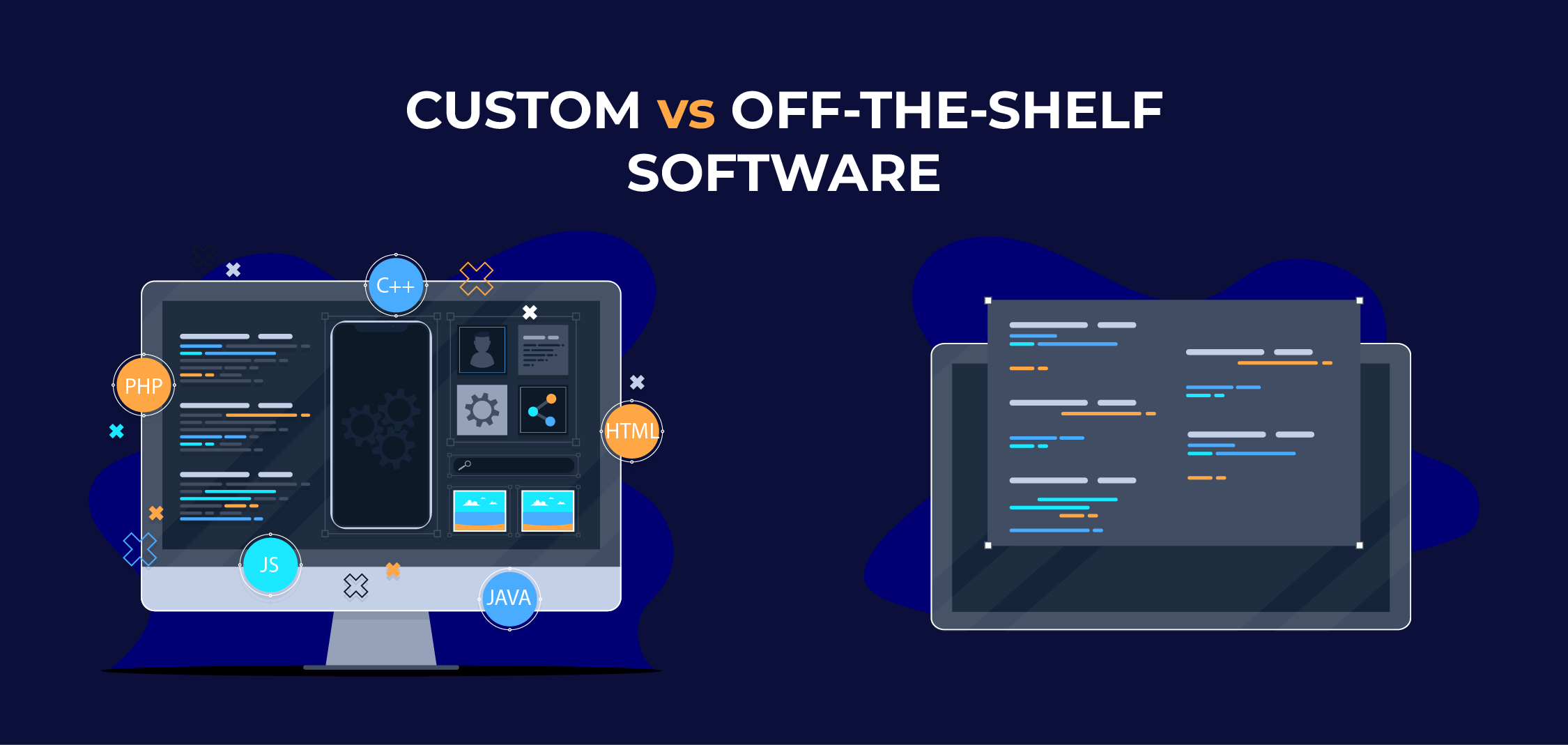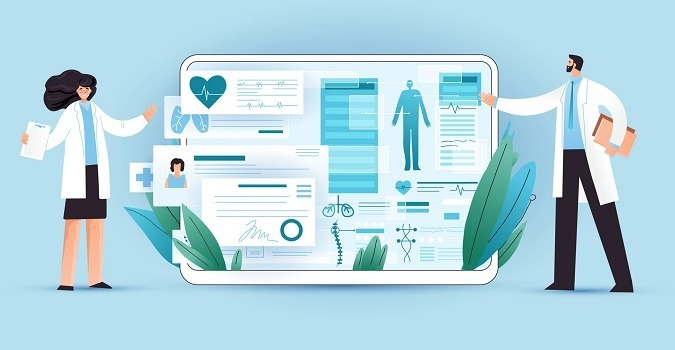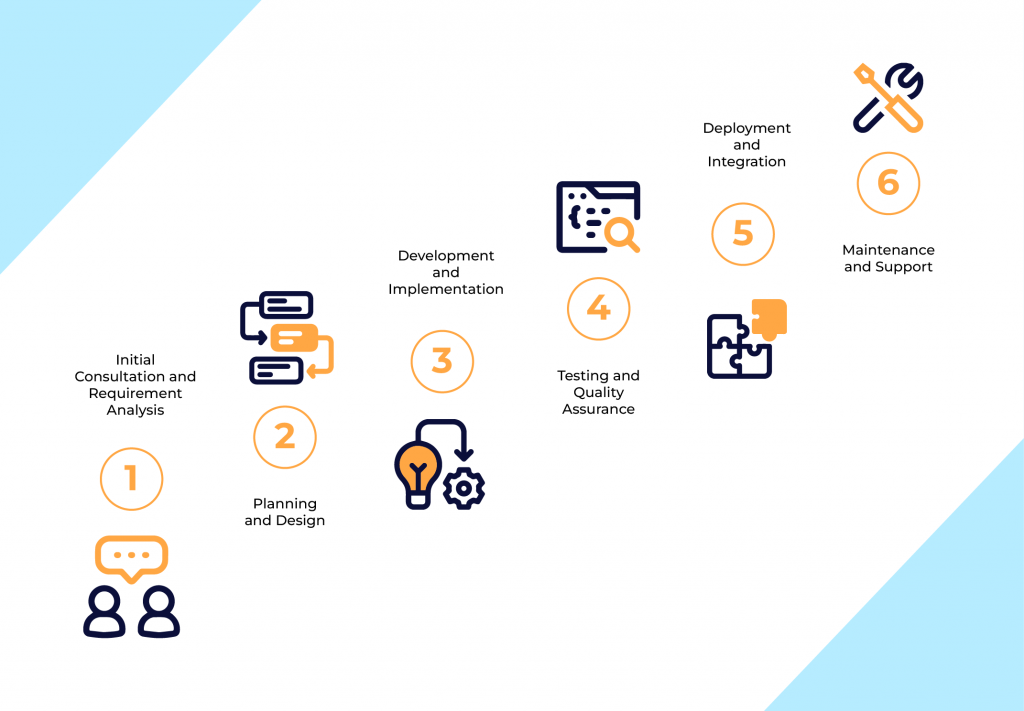Overview of Custom Healthcare Software Development
Custom healthcare software development refers to the creation of personalized software solutions that are specifically designed to address the unique needs and challenges faced by healthcare organizations. Unlike off-the-shelf solutions, which offer a one-size-fits-all approach, custom software is developed from scratch to integrate seamlessly with existing systems, enhance operational workflows, and ultimately improve patient care. These tailored solutions can range from electronic health records (EHR) systems to telemedicine platforms and patient engagement tools, all built to cater to the specific requirements of healthcare providers.
Importance of Custom Healthcare Software Solutions
The importance of custom healthcare software solutions lies in their ability to address the specific needs of healthcare organizations, leading to improved efficiency, better patient outcomes, and enhanced regulatory compliance. Generic software solutions often fall short in meeting the nuanced demands of healthcare providers, such as managing patient data, streamlining clinical workflows, and ensuring compliance with stringent regulations like HIPAA. Custom software solutions, on the other hand, are designed with these unique requirements in mind, providing healthcare organizations with tools that are both powerful and user-friendly.
Current Market Trends in Healthcare Software Development
The healthcare software development market is evolving rapidly, driven by technological advancements and the increasing demand for efficient, patient-centric care. Key trends include:
- Telemedicine: The COVID-19 pandemic has accelerated the adoption of telemedicine, making it a critical component of modern healthcare. Custom telemedicine platforms enable remote consultations, improving access to care and reducing the burden on healthcare facilities.
- Artificial Intelligence and Machine Learning: AI and ML are transforming healthcare by enabling predictive analytics, personalized treatment plans, and improved diagnostic accuracy. These technologies are increasingly being integrated into custom healthcare software to enhance clinical decision-making.
- Data Security and Compliance: With the growing volume of sensitive patient data, there is an increased focus on data security and regulatory compliance. Custom software solutions are being developed with robust security features and compliance measures to protect patient information.
- Mobile Health (mHealth): Mobile applications are becoming an essential tool for patient engagement and self-management. Custom mHealth apps provide patients with easy access to their health information, appointment scheduling, and telehealth services, enhancing their overall healthcare experience.
Custom Healthcare Software vs. Off-the-Shelf Solutions

Custom Healthcare Software Solutions
Custom healthcare software solutions are designed and developed specifically for a particular healthcare organization, taking into account its unique workflows, challenges, and goals. These solutions offer a high degree of customization, ensuring that all features and functionalities align perfectly with the organization’s needs.
Advantages of Custom Healthcare Software Solutions
- Tailored Functionality: Custom software is built to meet the specific needs of an organization, providing features that are essential for its operations.
- Seamless Integration: Custom solutions can be integrated seamlessly with existing systems, reducing the risk of data silos and ensuring smooth workflows.
- Scalability: Custom software can be scaled to accommodate the growth and evolving needs of the organization.
- Regulatory Compliance: Custom software can be designed to comply with specific regulatory requirements, ensuring that the organization remains compliant with healthcare standards such as HIPAA.
- Competitive Advantage: By leveraging unique functionalities, organizations can gain a competitive edge in the market, offering superior services to their patients.
Off-the-Shelf Healthcare Software Solutions
What is Off-the-Shelf Software
Off-the-shelf software refers to pre-packaged software solutions that are developed for a broad audience with general needs. These solutions are readily available for purchase and can be deployed quickly without the need for extensive customization.
- Electronic Health Records (EHR): Standard EHR systems provide essential functionalities for managing patient records, including data entry, storage, and retrieval.
- Practice Management Software: These solutions help manage administrative tasks such as appointment scheduling, billing, and patient registration.
- Telemedicine Platforms: Generic telemedicine solutions enable remote consultations and patient monitoring, offering a quick and cost-effective way to provide virtual care.
Benefits of off-the-shelf software include lower initial costs, quicker implementation, and vendor support for updates and maintenance. These solutions are ideal for smaller healthcare organizations or those with less complex needs.
Limitations Compared to Custom Healthcare Software Solutions
- Limited Customization: Off-the-shelf solutions may not offer the specific functionalities required by an organization, leading to inefficiencies.
- Integration Issues: These solutions may not integrate seamlessly with existing systems, resulting in data silos and fragmented workflows.
- Scalability: Off-the-shelf software may not be easily scalable or adaptable to the evolving needs of the organization.
Compliance Gaps:
- Generic solutions may not fully comply with specific regulatory requirements, posing risks to the organization.
Benefits of Custom Healthcare Software Development
Enhanced Functionality
Custom healthcare software provides enhanced functionality tailored to the specific needs of an organization. This includes specialized features that are not available in generic solutions, such as customized workflows, patient management systems, and analytics tools that provide deeper insights into operations and patient care.
Improved Efficiency
By streamlining processes and automating routine tasks, custom healthcare software significantly improves operational efficiency. This allows healthcare providers to focus more on patient care rather than administrative tasks, leading to better patient outcomes and higher satisfaction.
Scalability and Flexibility
Custom software solutions are designed to be scalable and flexible, allowing healthcare organizations to adapt to changing needs and growth. This means that as the organization expands or its requirements evolve, the software can be modified and upgraded without significant disruptions.
Compliance and Security
Custom healthcare software can be developed with stringent security measures and compliance protocols in mind, ensuring that patient data is protected and regulatory requirements are met. This is particularly important in the healthcare industry, where data breaches can have severe consequences.
Types of Custom Healthcare Software Development
Electronic Health Records (EHR) Systems
EHR systems are a cornerstone of healthcare IT, providing a digital version of patients’ paper charts. Custom EHR systems are designed to meet the specific needs of a healthcare provider, offering features such as:
- Comprehensive patient data management: Custom EHR systems allow for the detailed recording and management of patient information, including medical history, treatment plans, and lab results.
- Integration with other healthcare systems: Custom EHRs can be seamlessly integrated with other systems such as laboratory information systems (LIS), radiology information systems (RIS), and billing systems.
- Customizable templates for different specialties: Custom EHRs can be tailored to include templates specific to various medical specialties, improving workflow efficiency.
- Advanced analytics and reporting: Custom EHRs provide powerful analytics tools that enable healthcare providers to generate detailed reports and gain insights into patient care and operational performance.
Telemedicine Platforms
Telemedicine platforms enable remote consultations and monitoring, improving access to care for patients in remote areas or those with mobility issues. Custom telemedicine solutions offer features such as:
- Secure video conferencing: Custom telemedicine platforms provide secure, HIPAA-compliant video conferencing capabilities for remote consultations.
- Integration with EHR systems: Custom telemedicine solutions can be integrated with EHR systems to ensure that patient information is readily available during virtual visits.
- Remote patient monitoring: Custom telemedicine platforms can include features for remote monitoring of patients’ vital signs and health metrics.
- Customizable patient portals: Custom telemedicine solutions can offer patient portals that allow patients to schedule appointments, access health information, and communicate with healthcare providers.
Practice Management Software
Custom practice management software helps healthcare organizations manage administrative tasks more efficiently. Key features include:
- Appointment scheduling and reminders: Custom practice management software can include advanced scheduling tools that allow for the easy management of appointments and automated reminders to reduce no-shows.
- Billing and coding: Custom practice management software can streamline billing and coding processes, reducing errors and improving revenue cycle management.
- Patient registration and intake: Custom practice management software can automate the patient registration and intake process, improving accuracy and efficiency.
- Workflow automation: Custom practice management software can automate routine administrative tasks, freeing up staff to focus on patient care.

Patient Portals
Patient portals enhance patient engagement and self-service by providing a secure online platform for accessing health information and services. Custom patient portals offer:
- Secure messaging with healthcare providers: Custom patient portals allow patients to securely communicate with their healthcare providers, improving communication and patient satisfaction.
- Access to medical records and test results: Custom patient portals provide patients with easy access to their medical records and test results, empowering them to take an active role in their healthcare.
- Appointment scheduling: Custom patient portals allow patients to schedule appointments online, reducing the administrative burden on staff.
- Bill payment and insurance information: Custom patient portals provide patients with the ability to view and pay their bills online and access insurance information.
Custom Mobile Apps
Custom mobile apps increase accessibility and patient interaction by providing convenient, on-the-go access to healthcare services. Features of custom mobile apps include:
- Appointment scheduling and reminders: Custom mobile apps allow patients to schedule appointments and receive reminders on their mobile devices.
- Medication management: Custom mobile apps can include features for managing medications, including reminders to take medications and tracking of medication adherence.
- Health tracking and monitoring: Custom mobile apps can provide tools for tracking and monitoring health metrics such as blood pressure, glucose levels, and physical activity.
- Telehealth consultations: Custom mobile apps can include telehealth capabilities, allowing patients to have virtual consultations with their healthcare providers.
Healthcare Analytics Solutions
Healthcare analytics solutions utilize data to provide better decision-making and insights. Custom analytics tools can help healthcare organizations:
- Identify trends and patterns in patient care: Custom analytics solutions can analyze patient data to identify trends and patterns that can inform treatment plans and improve patient outcomes

- Monitor and improve clinical outcomes: Custom analytics solutions can track clinical outcomes and identify areas for improvement, helping healthcare providers to deliver better care.
- Optimize operations and reduce costs: Custom analytics solutions can analyze operational data to identify inefficiencies and opportunities for cost savings.
- Ensure compliance and quality control: Custom analytics solutions can monitor compliance with regulatory requirements and quality control standards, helping healthcare organizations to maintain high standards of care.
Why is it Better to Outsource Custom Healthcare Software Development
Cost Efficiency
Outsourcing custom healthcare software development can be more cost-efficient than building an in-house team. By outsourcing, healthcare organizations can avoid the high costs associated with hiring, training, and retaining specialized IT staff. Additionally, outsourcing allows organizations to benefit from the economies of scale and expertise of a dedicated software development company.
Access to Global Professionals and the Latest Talent
Outsourcing provides access to a global pool of professionals and the latest talent in software development. This ensures that healthcare organizations can leverage the expertise of experienced developers who are up-to-date with the latest technologies and industry best practices.
Flexibility
Outsourcing offers greater flexibility in terms of project management and resource allocation. Healthcare organizations can scale their development efforts up or down based on their needs, without the constraints of maintaining a large in-house team.
Increased Productivity and Saving Time
By outsourcing custom software development, healthcare organizations can focus on their core competencies and patient care, while the software development company handles the technical aspects. This can lead to increased productivity and significant time savings, allowing organizations to deliver better care and services to their patients.
- Monitor and improve clinical outcomes: Custom analytics solutions can track clinical outcomes and identify areas for improvement, helping healthcare providers to deliver better care.
- Optimize operations and reduce costs: Custom analytics solutions can analyze operational data to identify inefficiencies and opportunities for cost savings.
- Ensure compliance and quality control: Custom analytics solutions can monitor compliance with regulatory requirements and quality control standards, helping healthcare organizations to maintain high standards of care.
Custom Healthcare Software Development Process

Initial Consultation and Requirement Analysis
The first step in the custom healthcare software development process is the initial consultation and requirement analysis. During this phase, the development team works closely with the healthcare organization to understand its specific needs, challenges, and goals. This involves conducting interviews, reviewing existing systems, and gathering detailed requirements.
Planning and Design
The planning and design phase involves creating a detailed project plan and designing the software architecture. This includes defining the scope of the project, setting timelines, and identifying the technologies and tools to be used. The design phase involves creating wireframes, prototypes, and user interface (UI) designs to ensure that the software meets the organization’s requirements.
Development and Implementation
The development and implementation phase involves writing the code and building the software according to the design specifications. This phase includes:
- Coding and programming: The development team writes the code for the software, following best practices and coding standards.
- Integration with existing systems: The software is integrated with existing systems and databases to ensure seamless operation.
- Feature development: The development team builds the features and functionalities defined in the requirement analysis phase.
Testing and Quality Assurance
Testing and quality assurance (QA) are critical to ensuring that the software functions as intended and is free of bugs and errors. This phase involves:
- Unit testing: Testing individual components of the software to ensure they function correctly.
- Integration testing: Testing the integration of different components to ensure they work together seamlessly.
- User acceptance testing (UAT): Involving end-users in the testing process to ensure that the software meets their needs and expectations.
- Performance testing: Testing the software’s performance under various conditions to ensure it can handle the expected load.
Deployment and Integration
Once the software has passed all testing and QA phases, it is deployed and integrated into the healthcare organization’s environment. This phase involves:
- Installation and configuration: Installing and configuring the software on the organization’s servers and systems.
- Data migration: Migrating data from existing systems to the new software.
- Training and support: Providing training and support to end-users to ensure they can effectively use the new software.
Maintenance and Support
After deployment, ongoing maintenance and support are essential to ensure the software continues to function optimally. This includes:
- Bug fixes and updates: Addressing any issues that arise and providing regular updates to improve functionality and security.
- Performance monitoring: Monitoring the software’s performance to identify and address any potential issues.
- User support: Providing ongoing support to end-users to address any questions or issues they may have.
Common Challenges in Custom Healthcare Software Development and How to Overcome Them
Complexity of Requirements
Healthcare organizations often have complex and specific requirements that can be challenging to address in custom software development. To overcome this challenge, it is essential to conduct a thorough requirement analysis and involve stakeholders in the planning and design phases to ensure all needs are addressed.
Integration with Existing Systems
Integrating new custom software with existing systems can be challenging, particularly if the existing systems are outdated or lack interoperability. To address this, it is important to conduct a detailed analysis of the existing systems and plan the integration carefully, using industry-standard protocols and APIs.
Data Security and Compliance
Ensuring data security and compliance with healthcare regulations is a significant challenge in custom software development. To overcome this, developers should implement robust security measures, conduct regular security audits, and ensure that the software complies with all relevant regulations.
Managing Project Timelines and Costs
Custom software development projects can be complex and time-consuming, making it challenging to manage timelines and costs. To address this, it is important to create a detailed project plan, set realistic timelines, and closely monitor progress to ensure the project stays on track.
Key Considerations for Custom Healthcare Software Development
Selecting the Right Development Partner
Choosing the right development partner is crucial for the success of a custom healthcare software project. Key factors to consider include the partner’s experience in healthcare software development, their technical expertise, and their ability to understand and address the specific needs of the organization.
Budgeting and Cost Management
Effective budgeting and cost management are essential to ensure that the project stays within budget and delivers value. This involves setting a realistic budget, monitoring expenses, and being prepared for unforeseen costs.
Security and Compliance
Security and compliance should be a top priority in custom healthcare software development. Developers must implement robust security measures, conduct regular audits, and ensure that the software complies with all relevant regulations.
Future-Proofing Your Solution
Future-proofing involves designing software that can adapt to changing needs and technologies. This includes using scalable and flexible technologies, staying updated with industry trends, and planning for future upgrades and enhancements.
Our Expertise and Approach
Experion has extensive experience in developing custom healthcare software solutions that meet the unique needs of healthcare organizations. Our approach involves a deep understanding of the industry, a focus on innovation, and a commitment to delivering high-quality solutions.
Why Choose Experion?
- Proven Track Record: We have a proven track record of successfully delivering custom healthcare software projects.
- Industry Expertise: Our team has in-depth knowledge of healthcare regulations and standards.
- Cutting-Edge Technologies: We leverage the latest technologies to develop innovative solutions that enhance patient care and operational efficiency.
- Customer-Centric Approach: We work closely with our clients to understand their needs and deliver solutions that exceed their expectations.
Key Takeaways
Custom healthcare software development offers numerous benefits, including enhanced functionality, improved efficiency, scalability, and compliance. While off-the-shelf solutions can provide quick and cost-effective options, custom software is tailored to meet the unique needs of healthcare organizations, providing a competitive edge and better patient outcomes. Outsourcing custom software development can be cost-efficient and provide access to global talent and the latest technologies. However, it is essential to select the right development partner, manage costs effectively, and ensure that the software is secure and compliant. Looking ahead, emerging technologies such as AI, ML, and blockchain will continue to shape the future of custom healthcare software development, offering new opportunities for innovation and improvement.

